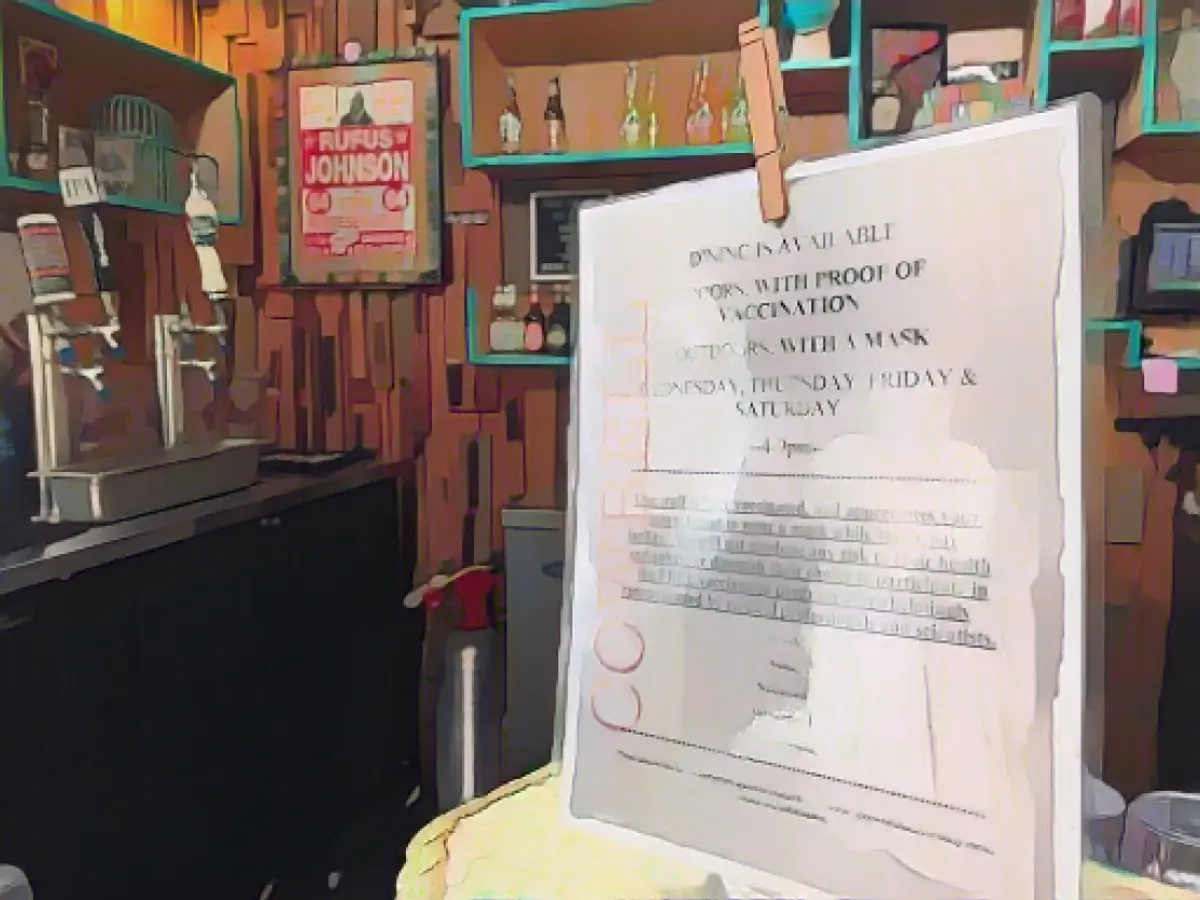Eating out with anger: How restaurants handle pushback over vaccine proof requirements
With the rise of the COVID-19 pandemic, restaurants across the U.S. have started implementing vaccine proof requirements for indoor dining. Cowbell, located in Montpelier, Vermont, was among the first to do so, posting signs and updating their website with the new policy in July 2021. New Orleans followed suit, requiring proof of vaccination or a negative COVID-19 test for indoor diners beginning August 16.
"The first day, we got some bad words," said Brack May, co-owner of the restaurant with his wife, Krista Pendergraft-May. May explained that while some people have been understanding, others have become enraged, demanding to show their cards.

May recalled two separate incidents where customers fiercely disagreed with the vaccine proof requirement. In one instance, a woman showed her card, but her husband refused to comply, muttering expletives and storming out.
The restaurant also faced a barrage of negative messages, including conspiratorial theories and claims that the coronavirus was a lie. May attempted to clarify his motivations for the vaccine proof requirement, engaging with as many critics as he could and reminding them that it was a matter of courtesy.
In cities like New York and San Francisco, patrons dining indoors are required to provide proof of vaccination. As more restaurants adopt the practice, the pushback has grown more widespread, with some restaurants struggling to enforce the rules and navigate the line between customer service and regulation.
Prioritizing safety
The guideline to dine inside Cafe Hark in Minneapolis requires masks for all indoor diners, regardless of whether they are vaccinated. Katherine Pardue, co-owner and chef, stated that customers have not been angered by the policy, and business has even seen a slight increase. However, the restaurant has received criticism from outside sources, including phone calls, emails, and social media messages.
"It's really sad that the rhetoric around vaccines gets so politicized, when we don't see it as a political issue," said Pardue. "As business owners, we have the right to make decisions that are best for our establishment."
Not all businesses have seen an increase in business. Since New York City started requiring proof of vaccination for indoor diners on August 16, restaurants have expressed concern about the impact on their bottom line. The city plans to begin enforcing the rule on September 13, with fines for non-compliant establishments.
Art Depole, co-owner of Mooyah Burgers in Times Square, voiced his opposition to the current mandate due to its potential negative impact on his business. The restaurant has seen a 25% decrease in sales compared to the previous week, and approximately one-fifth of his employees have indicated they may quit due to the requirement to reveal their vaccination status or get vaccinated.
Despite the backlash, some restaurants and businesses have seen an increase in support for their vaccine proof policies. Josh Weinstein, owner of The Quiet Few in Boston, stated that the policy "has taken a weight off my shoulders" as he can now assure his customers that they are vaccinated. While there have been negative reactions, Weinstein reported that overall, the feedback from his regular customers has been positive.
Source:
Further reading:
Supplementary data:
Restaurants in the United States have handled the customer reactions to vaccine requirement policies for indoor dining in a variety of ways, depending on the specific regulations and policies in place. Here are some additional insights and strategies:
- Implementing the policy:
- Clear communication: Restaurants have communicated the vaccine requirement policies clearly to their customers, either through signs, website updates, or verbal communication.
- Flexibility and alternatives: In some cases, restaurants have offered alternatives like outdoor seating or takeout for unvaccinated customers who still want to dine.
- Handling customer reactions:
- Support for policies: Many restaurants have supported the vaccine requirement policies, recognizing the importance of maintaining a safe environment for staff and customers.
- Adaptable approach: Restaurants have adapted their approach to customer reactions based on the specific policies and regulations in place, finding a balance between enforcing policies and providing good customer service.
- Legal considerations:
- Legal compliance: Restaurants must comply with local laws and regulations regarding vaccine requirements. This includes ensuring that they have the necessary documentation and procedures in place to verify vaccination status and handle any disputes.
- Seeking legal counsel: In some cases, restaurants have sought legal counsel to ensure they are following the correct procedures and handling customer reactions appropriately.
- Employee training:
- Staff awareness and education: Restaurants have trained their staff on vaccine requirement policies, handling customer inquiries, addressing concerns, and ensuring all interactions are respectful and professional.
- Public perception:
- Public support: Restaurants that have implemented vaccine requirement policies have often seen public support for these measures, especially during the COVID-19 pandemic. This support can help mitigate negative reactions from unvaccinated customers.
Overall, restaurants in the United States have engaged with customer reactions to vaccine requirement policies by implementing clear communication, adapting their approach, ensuring legal compliance, training staff, and fostering public support for policies that promote safety.








